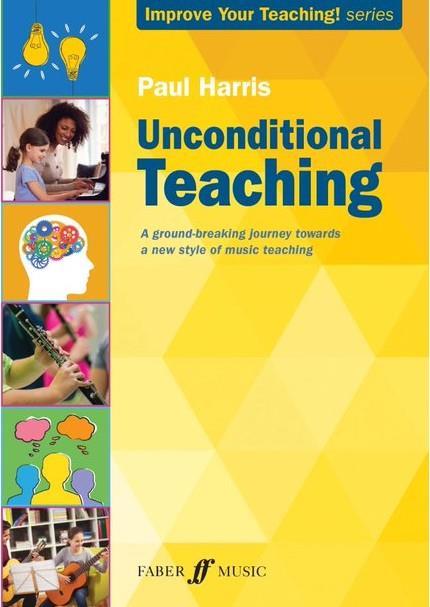Celia Cobb reviews the latest in Paul Harris’s illuminating series of books on music education

Unconditional Teaching
Paul Harris
64PP ISBN 9780571542174
FABER MUSIC £9.99
Unconditional Teaching is the latest in the Improve Your Teaching! series of books by Paul Harris. Written in a kind, non-judgemental way, this slim volume invites teachers to consider what subconscious ‘conditions’ they might be bringing to the learning environment. Having helped us to identify them, the author gently nudges us to see how these conditions could stand in the way of effective learning and teaching, and he encourages us to think about ways to adjust our mindsets to manage or remove them from our teaching.
The author addresses many seemingly reasonable ‘conditions’, such as a teacher’s expectations about attitude, practice and progress, and then shows how adopting a different approach, without these conditions at the heart, can allow lessons to proceed positively whether or not the conditions have been met. And the book highlights the need for teachers to think about and value each student without ever labelling, comparing or categorising them.
At its most basic level, the book’s message is fairly simple: be kind and encouraging, no matter what. As teachers, we need to accept each student and every teaching situation exactly as it presents itself, rather than inwardly sighing and rolling our eyes because Johnny has forgotten his scale book for the third week running, or because the music room isn’t free and the Year 2 group violin lessons are in the PE cupboard yet again. And no matter how far into our teaching careers we are, I don’t think any of us can ever hear too many reminders of the fact that ‘whatever our student did, it is always possible to find a positive and constructive response to move the lesson forward.’
This book would be as useful to those who are new to instrumental teaching as to veteran teachers looking for a booster or some holiday reading on professional development. The reader is constantly challenged to think and reflect on the thoughts behind their teaching, but always in a gentle and positive way. Although some weighty topics are considered, the information in the book is divided into manageable chunks, and (a small but very welcome point for this reader) the footnotes are located in the margin next to the text, which makes them quick and easy to read and refer to. As well as all the philosophy, the book contains a certain amount of practical advice on topics such as how to deal with disrespectful students, and how to use questioning to help students form a positive attitude towards scales.
It’s worth noting that although the content is thought-provoking and well-written, the price is a little on the high side for such a short read. There are frequent references throughout the book to the author’s other volumes in the series, particularly Simultaneous Learning, which I must confess I haven’t (yet) read. Although the ‘simultaneous learning’ approach is briefly outlined near the end of the text, a big bumper book combining all of these short books into one rather more substantial work would, I’m sure, be a welcome and useful addition to any music teacher’s library.
CELIA COBB
Read: Opinion: Best of both worlds
Read: Opinion: Managing a good ending
Review: Book review: My Violin Needs Help!: A repair diagnostics guide for players and teachers











































No comments yet